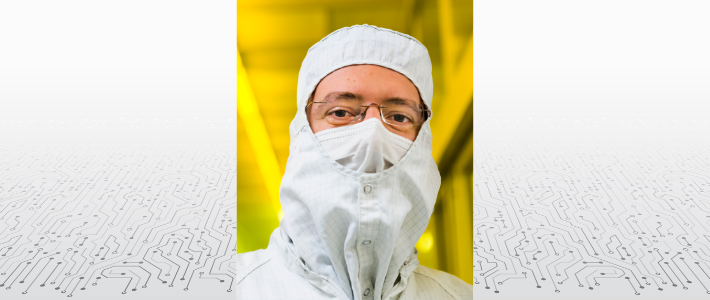Researchers at Linköping University have developed a new method for producing semiconductors with minimal environmental impact. It is about so-called organic electronics that replace silicon as a semiconductor in products such as digital displays, energy storage, solar cells and implants.
The advantages of organic electronics are that they offer ease of fabrication, high flexibility, low weight, and good electrical properties. The main disadvantage is that production often requires environmentally harmful and flammable solvents.
However, researchers in Linköping have now managed to overcome this problem. Using a new technique called “ground state electron transfer,” more environmentally friendly semiconductors have been created without solvents, instead using water and conductive ink.
Connected objects
One of the biggest drawbacks of organic electronics in general is that they require unpleasant solvents that are often neither good for health nor the environment. We have recently succeeded in replacing many materials with ethanol, but ethanol is still flammable. We realized that water was the best solution, and now we have found a way to make a processable polymer from water and ink, says Simone Fabiano, who researches organic electronics at Linköping University of Environment and Development.
The great potential for new technology lies in what is known as the “Internet of Things” or IoT – networks of physical things – such as home appliances, vehicles and other things – equipped with sensors, software and other technologies to communicate and exchange data with other devices and systems over the Internet.
– This is why we are conducting research on this topic. According to estimates, by 2035, there will be several trillion IoT devices connecting us to everything and everyone. This is where organic electronics plays an important role due to its ease of production. This is no less important due to the geopolitical situation where silicon chips are becoming increasingly unavailable.
Given the expected scale of growth of the Internet of Things, it is crucial that production is carried out in as environmentally friendly a manner as possible.
– Think for yourself about the environmental impact of using trillions of devices made with harmful solvents. It won't work. But if we made all production water-based, the vision of printed electronics, amounting to trillions of IoT devices, could potentially be realized.
It is still dependent on oil
Although semiconductors can now be manufactured using water and ink as conductors, the fact remains that ink is oil-based. The hope is that we can finally make semiconductors directly from water, says Simone Fabiano.
– Currently we rely on oil-based compounds. To be 100% sustainable, we need to find other raw materials, perhaps materials from forests, from waste or perhaps food waste. There are lots of aromatic compounds that we can use to make polymers. There is a long way to go, but it would be great if we were able to make small electronic devices, or even solar cells, made entirely from sustainable resources and processed from water. It will be a big breakthrough.
facts
Organic electronics
Organic electronics replaces silicon with plastic as a semiconductor, enabling moldable, stretchable and flexible applications – for example, such as bendable displays on mobile phones. This technology can also be used in solar cells, in new types of transistors, and even in devices that can communicate and operate in the human body.
Organic electronics are slightly slower than conventional silicon and are therefore not suitable for fast electronics such as microprocessors. Organic electronics typically operate on the order of kilohertz, while silicon can operate on the order of gigahertz.
Reducing the use of silicon in electronic components could have important social consequences, for example on human rights in China where silicon production is linked to forced labor. However, it is impossible to say exactly how much silicon can be replaced by organic electronics.
– It is a very difficult question, and there is no specific number. Currently, the majority of high-quality silicon chips are manufactured in Asia. Clearly, successful developments in organic and printed electronics could bring some electronics production back to Europe.
Simone Fabiano and his colleagues at Linköping are currently focusing on solar cells, where research has shown that the new conductive ink increases the stability and efficiency of organic solar cells compared to traditional materials. The ink has also been used to create electrochemical transistors and artificial neurons with properties similar to biological neurons.
The Linkoping researchers' findings were recently published in the journal Nature.

“Extreme tv maven. Beer fanatic. Friendly bacon fan. Communicator. Wannabe travel expert.”






More Stories
Intensifying preparations to combat polio in Gaza
SLU believes more of the pandemic is in wastewater — but the peak has been passed
Ensuring safe care for people with dementia – Sundsvall Tidding